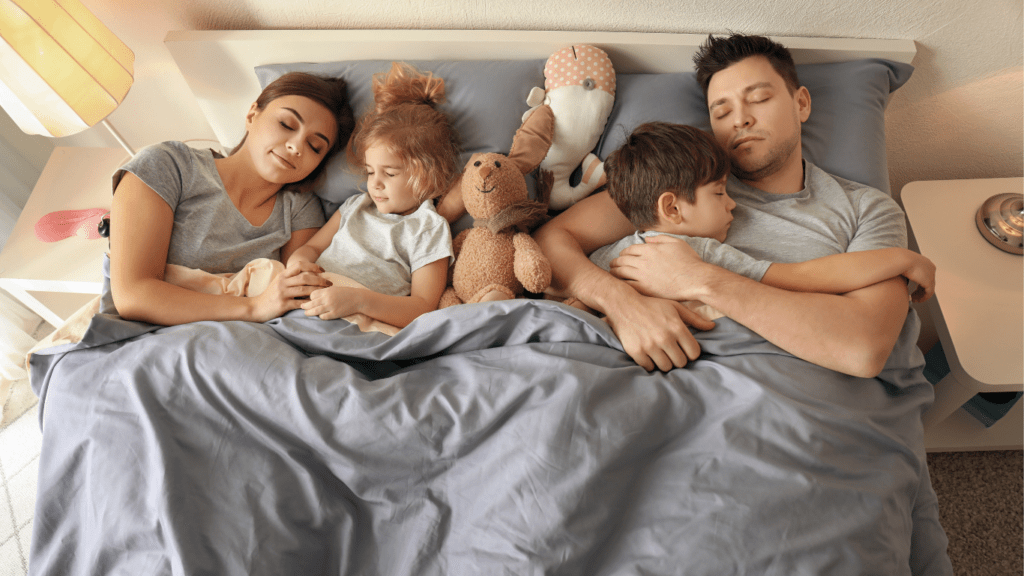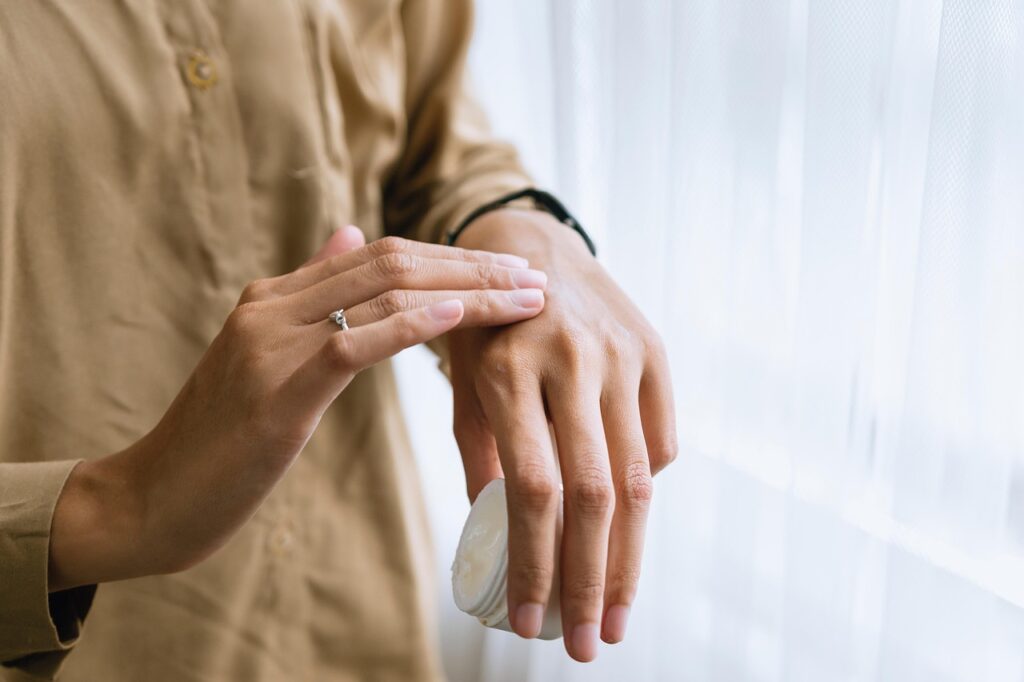Sleep isn’t just a luxury—it’s a necessity, especially for parents and children juggling busy schedules and endless responsibilities. I’ve learned that a good night’s rest can make all the difference in how we face the day ahead, yet it often feels like quality sleep is the first thing to slip through the cracks.
The Importance Of Sleep For Overall Health
- Sleep plays a critical role in maintaining physical, mental, and emotional health. It supports immune function by helping the body produce infection-fighting cells and antibodies. A lack of sleep over time weakens the immune system, making individuals more susceptible to illnesses.
- Memory consolidation occurs during sleep. The brain processes and stores new information, improving learning and focus. For children, this is essential for cognitive development and academic performance.
- Hormone regulation depends heavily on adequate sleep. Chronic sleep deprivation disrupts hormones that control hunger, increasing the risk of obesity. It also affects stress hormones like cortisol, leading to mood swings and anxiety.
- Energy levels and productivity benefit significantly from quality sleep. For parents managing demanding schedules, sufficient rest boosts endurance and decision-making ability. Children need proper sleep to support healthy growth and active play.
- Insufficient sleep increases the risk of chronic conditions. Studies from the CDC reveal that adults consistently getting less than 7 hours of sleep per night are at higher risk for diabetes, heart disease, and stroke. Regular sleep patterns reduce these risks for all age groups.
Common Sleep Challenges For Parents And Children
Quality sleep can be difficult to achieve for both parents and children due to various factors. Understanding these challenges helps in addressing them effectively for more restful nights.
Stress And Sleep Deprivation
Stress disrupts the ability to fall and stay asleep. Parents managing work, household responsibilities, and child care often experience chronic sleep deprivation. For children, academic pressure or social anxieties can lead to restless nights. Both groups may face increased irritability, poor concentration, and weakened immune systems from prolonged sleep deficits.
Impact Of Screen Time On Sleep
Excessive screen exposure before bedtime interferes with melatonin production. Devices like:
- smartphones
- tablets
- televisions
emit blue light, which delays sleep onset if used at night. In children, screen time often replaces calming pre-sleep activities like reading, reducing sleep quality. For parents, late-night device usage can prolong wakefulness and disrupt the ability to rest adequately.
Irregular Sleep Schedules
Inconsistent bedtimes and wake-up times affect the body’s circadian rhythm. Parents balancing variable work shifts or unpredictable routines often struggle with setting a stable sleep schedule. Children lacking a regular bedtime may encounter difficulty in falling asleep, resulting in insufficient rest and behavioral challenges during the day.
Tips For Parents To Improve Their Sleep

Improving sleep quality begins with intentional habits that foster rest and relaxation. Parents can create better sleep environments and routines to combat sleep challenges.
Establish A Consistent Bedtime Routine
I maintain a regular sleep schedule to regulate my body’s internal clock. Choosing the same bedtime every night, even on weekends, helps me fall asleep faster. Including calming activities like reading, meditation, or light stretching signals my body that it’s time to wind down. For example, I turn off electronics 30 minutes before bed to minimize disruptions from blue light.
Create A Relaxing Sleep Environment
I ensure my bedroom promotes restful sleep by controlling light, noise, and temperature. Using blackout curtains or an eye mask eliminates light intrusion. I rely on white noise machines or fans to block out unwanted sounds. Keeping the room cool, ideally between 60°F and 67°F, enhances comfort throughout the night. Comfortable mattresses, pillows, and breathable bedding further improve my sleep quality.
Limit Caffeine And Alcohol Before Bed
I avoid consuming caffeine, including coffee or tea, in the late afternoon to prevent sleep delays. Monitoring alcohol intake also improves sleep cycles since alcohol disrupts deep sleep stages. Instead, I opt for herbal teas like chamomile or warm milk in the evening to support relaxation.
Helping Children Develop Healthy Sleep Habits
Building healthy sleep routines is essential for children’s physical growth and emotional well-being. Consistent practices create a foundation for quality rest and better daily functioning.
Set Age-Appropriate Bedtimes
I establish bedtimes aligned with children’s developmental needs. For instance, preschoolers (3-5 years) need 10-13 hours of sleep, while school-aged children (6-12 years) benefit from 9-12 hours, based on American Academy of Sleep Medicine guidance. A predictable sleep schedule supports circadian rhythm consistency, improving sleep quality.
Minimize Screen Time Before Bed
Reducing evening device usage improves sleep onset. I recommend turning off all screens, including tablets, TVs, and gaming systems, at least 30 minutes prior to bedtime. The blue light from screens delays melatonin secretion, disrupting sleep cycles. Replacing screen time with calming activities, such as reading, helps prepare children for rest.
Encourage Relaxation Techniques
I incorporate relaxation practices to ease bedtime transitions. Deep breathing exercises, gentle stretches, or listening to soothing music can reduce restlessness. For younger children, guided imagery stories or a warm bath also promote relaxation. These methods make the process enjoyable and help create a sense of calm before sleep.
Managing Sleep During Different Life Stages
Sleep needs and challenges evolve as children grow, requiring different approaches to ensure restful nights. I’ve outlined specific tips for infants, toddlers, and teenagers to address their unique sleep requirements and issues.
Sleep Tips For Infants And Toddlers
Establishing a consistent bedtime routine helps infants and toddlers adjust to regular sleep patterns. Activities like a warm bath, gentle rocking, and reading a short book create cues for sleep readiness. For infants under 12 months, target 12-16 hours of sleep daily, including naps, while toddlers (ages 1-2) need 11-14 hours.
Ensure the sleep environment is safe and calming. Place infants on their backs in a crib free of pillows, blankets, or toys, per recommendations from the American Academy of Pediatrics. For toddlers, introduce security objects like a soft blanket or plush toy to promote comfort.
Address night wakings with soothing measures instead of instilling habits like nighttime feeding past six months unless medically necessary. For toddlers experiencing separation anxiety, reassure them with brief check-ins while avoiding prolonged interactions.
Addressing Sleep Issues In Teenagers
Teenagers often struggle with insufficient sleep due to academic demands, extracurricular activities, and social media use. Encourage 8-10 hours of nightly sleep to maintain their physical and mental well-being. Set a consistent bedtime and wake-up schedule, even on weekends, to align their sleep patterns with the natural circadian rhythm.
Limit screen exposure at least one hour before bed. Suggest replacing screen usage with downtime activities like reading non-digital materials or journaling. Blue light disrupts melatonin production, making screens one of the biggest culprits of poor teenage sleep.
Create a supportive sleep schedule by helping teens prioritize tasks and removing unnecessary late-night obligations. If sleep difficulties persist, explore stress management techniques such as mindfulness or relaxation exercises to prevent overthinking at night.




